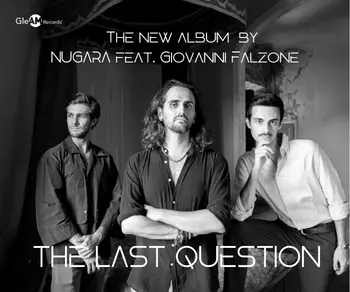Rodney Jordan: Memphis Blue (Baxter Music BME1004CD)
Now a resident of Florida, bass player Rodney Jordan was born and brought up in Memphis, hence Memphis Blue is a salute to his home city and a celebration of its soubriquet “Home Of The Blues”. Unsurprisingly, all eight tracks have a bluesy tinge about them, with the title track featuring an extended solo opening from the leader, sitting unashamedly in 12-bar territory.
Another Memphis native, trumpeter Melvin Jones, who also doubles on flugelhorn, is a major force when called upon; his solos are bold and authoritative in delivery, assisted by a bright ringing tone. He is also responsible for the opening tune The Storm Will Pass, a nicely paced tune, originating during the pandemic and intended as an optimistic outlook on the situation.
Gigi Gryce’s Minority, a much favoured vehicle for modernists, is handled beautifully by the quintet as they negotiate the fast tempo with ease. The following Latin-orientated Escapatoria is a deliberate come-down in both mood and approach, heralding the joyful Hargrove, described in the press handout as disco-inflected but at the very least an excuse for some bodily reaction. Autumn Leaves receives a radical exploration, being presented in a freely improvised manner, with the melody only alluded to in the final few bars.
The Mulgrew Miller piece Small Portion is a fitting vehicle for pianist Louis Heriveaux, a great admirer of the late keyboard player, his expansive approach doing justice to his forebear. Heriveaux’s ex-boss is celebrated in The Art Of Blakey, drummer Quentin E. Baxter taking some of the limelight and saxophonist Mark Sterbank giving depth on both alto and tenor.
Memphis Blue should be considered by all listeners of a modern persuasion who crave a return to those straightahead days of the 1960s when a touch of soul had credence and most other attempts at fusion were frowned upon by many.
Reggie Watkins: Rivers (BYNK Records BYNK 005)
Trombonist Reggie Watkins was born in West Virginia but became a Pittsburg resident at the back end of the 1990s, working out of that city ever since. For many years he toured with the Maynard Ferguson orchestra, becoming its music director along the way. This is the fourth album under his own name, the first being A-List, which had a release in 2004. He cites many musicians as inspirations, with J.J. Johnson and Jimmy Knepper being his main men on his chosen instrument.
For Rivers he assembled fellow Pittsburg residents Michael Bernabe (piano), Eli Naragon (bass) and Jason Washington Jr. (drums) – a trio adding to the impressive roster of musicians who have hailed from that city, including Earl “Fatha” Hines, Art Blakey and Billy Strayhorn. All the music and arrangements are the leader’s own work, placed in a setting he favours. This allows him to expand his ideas without having to consider the needs or contributions of another horn player.
His own work shows his awareness of the trombone tradition, his tone or phraseology not sullied by extraneous sounds or unnecessarily exploration of the unnatural extremities of his instrument, whether open or muted. His young bandmates follow his lead in a highly professional fashion, tailoring their output to the frontman’s needs.
Whatever the tempo or mood, Watkins is an impressive presence, the only downside being the anonymity of many of his own tunes.
NADT Orchestra: Dualism (Locomotive Records LOCO006CD)
Ostensibly, NADT is an eight-piece unit formed in Bologna in 2020 but the sleeve lists a substantial number of musicians involved in the recording of Dualism, including string players and vocalist. The driving force behind the group is guitarist Domenico Romano, who can be heard prominently on a couple of the tracks.
The philosophy of the collective is to call upon influences from around the world, to be heard both rhythmically and melodically as the music unfolds. All the compositions, and their arrangements, are credited to the group as a whole. Many of the tracks seek to achieve a aural density, which is occasionally rounded out by the presence of a synthesizer, used by pianist Vincenzo Bosco, another group member who figures strongly in the solo department.
Emphasis lies more readily on the collective sound than on the solo spots, which are generally workmanlike rather than ear-grabbing. Although that aforesaid density is often achieved in the arrangements, it would be easy to suggest these are periodically cacophonous and could benefit from a realignment of the competing instruments. Having made that observation, I’d say the orchestra can be applauded for its modus operandi alone.




